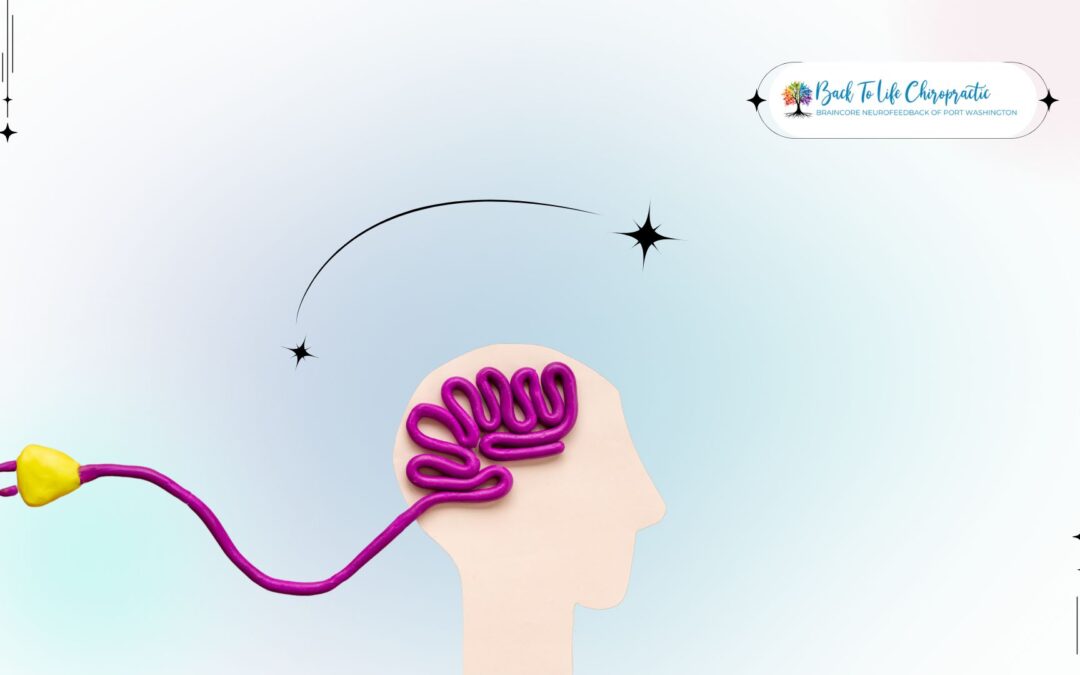
Drs. Michael Shwartzstein and Robyn Croutch bring over 45 years of experience to their chiropractic practice, focusing on holistic care for brain and body health. Inspired by a close friend’s son with ADHD, they integrated BrainCore Neurofeedback, achieving life-changing results for patients with autism, anxiety, and attention challenges. Dr. Croutch holds Dr. Amen’s Brain Health Professional Certification, and they also use thermography for early health detection. Together, they provide compassionate, comprehensive care for whole-body wellness.
When it comes to Attention-Deficit/Hyperactivity Disorder (ADHD), there’s no shortage of misconceptions. For parents navigating ADHD in their own families, these misunderstandings can lead to unnecessary guilt, frustration, and even harmful misinformation about how to best support their children. It’s time to separate fact from fiction and shine a light on the truth about ADHD.
Below, we’ll explore 10 common myths about ADHD and provide the facts you need to support your family with clarity, confidence, and compassion.
Myth 1: ADHD Isn’t Real—It’s Just an Excuse for Laziness
The Truth
ADHD is a well-documented neurodevelopmental disorder recognized by major medical organizations, including the CDC and the American Psychiatric Association. It affects brain development and activity tied to attention, self-control, and impulse regulation. It’s not about laziness—it’s about a neurological difference that requires tailored support and understanding.
Myth 2: ADHD Is Caused by Poor Parenting
The Truth
ADHD is not a result of a lack of discipline or parenting skills. It predominantly stems from genetic factors and differences in brain structure and function. While parenting approaches can influence behaviors, they don’t cause ADHD. Compassionate, informed parenting can, however, make a world of difference for children with this condition.
Myth 3: Children with ADHD Just Need to “Focus More”
The Truth
For kids with ADHD, focusing isn’t a matter of trying harder—it’s a neurological challenge. Their brains process and filter information differently, making it hard to concentrate consistently, even on tasks they find interesting. Understanding this nuance can help parents seek effective strategies rather than applying pressure that leads to frustration.
Myth 4: Kids with ADHD Will Outgrow It
The Truth
While some children may see a reduction in symptoms as they grow older, ADHD often persists into adolescence and adulthood. Roughly 60-70% of individuals diagnosed in childhood continue to experience symptoms later in life. That said, with the right tools and support systems, individuals with ADHD can thrive at any age.
Myth 5: ADHD Only Affects Boys
The Truth
ADHD affects both boys and girls, but girls are often underdiagnosed because their symptoms can present differently. While boys may exhibit hyperactivity and impulsive behavior, girls more commonly display inattentiveness, which may be overlooked or misinterpreted as daydreaming. Awareness is essential to ensure all children get the support they need.
Myth 6: Medication Is the Only Solution for ADHD
The Truth
Medication can play a role in ADHD management for some children, but it’s not the only solution. Behavioral therapy, parent training, school accommodations, and lifestyle adjustments (like a healthy diet and regular exercise) can all contribute to effective ADHD management. A holistic and individualized approach often yields the best results.
Myth 7: ADHD Is Just a Lack of Self-Control
The Truth
ADHD isn’t about weakness or a lack of willpower. It involves specific challenges in the brain’s executive functioning, which impacts planning, time management, and emotional regulation. Viewing these behaviors through a neurological lens can help parents move from frustration to empathy and proactive problem-solving.
Myth 8: ADHD Is Overdiagnosed
The Truth
While ADHD is more commonly diagnosed today than in the past, it’s not due to overdiagnosis—it’s the result of improved awareness and screening. According to research, ADHD remains underdiagnosed in some groups, particularly girls and minority populations. Comprehensive assessments are crucial for accurate diagnosis and care.
Myth 9: Kids with ADHD Can’t Succeed in School
The Truth
Children with ADHD can absolutely succeed academically, especially with the right support. Tools like individualized education plans (IEPs), extra time on tests, structured routines, and encouragement from teachers and parents can make a huge difference. Focusing on their strengths can help them build confidence and achieve their potential.
Myth 10: Adults with ADHD Can’t Be Successful
The Truth
Many adults with ADHD are thriving in various careers and life paths. Their brains often excel at creativity, out-of-the-box thinking, and problem-solving. Notable individuals—including entrepreneurs, artists, and leaders—credit their ADHD for their unique perspectives and accomplishments. With the right coping strategies, adults with ADHD can flourish.
Supporting Your Child with Confidence
Arming yourself with accurate information is one of the best ways to support a child with ADHD. By breaking free from these common myths, you can see this condition for what it is—a neurological difference—and focus on actionable ways to nurture your child’s growth and well-being.
If you’re seeking more guidance on raising a child with ADHD or implementing holistic strategies for support, join our community or connect with us for actionable insights and resources. Together, we can create an environment where your child can thrive!


0 Comments